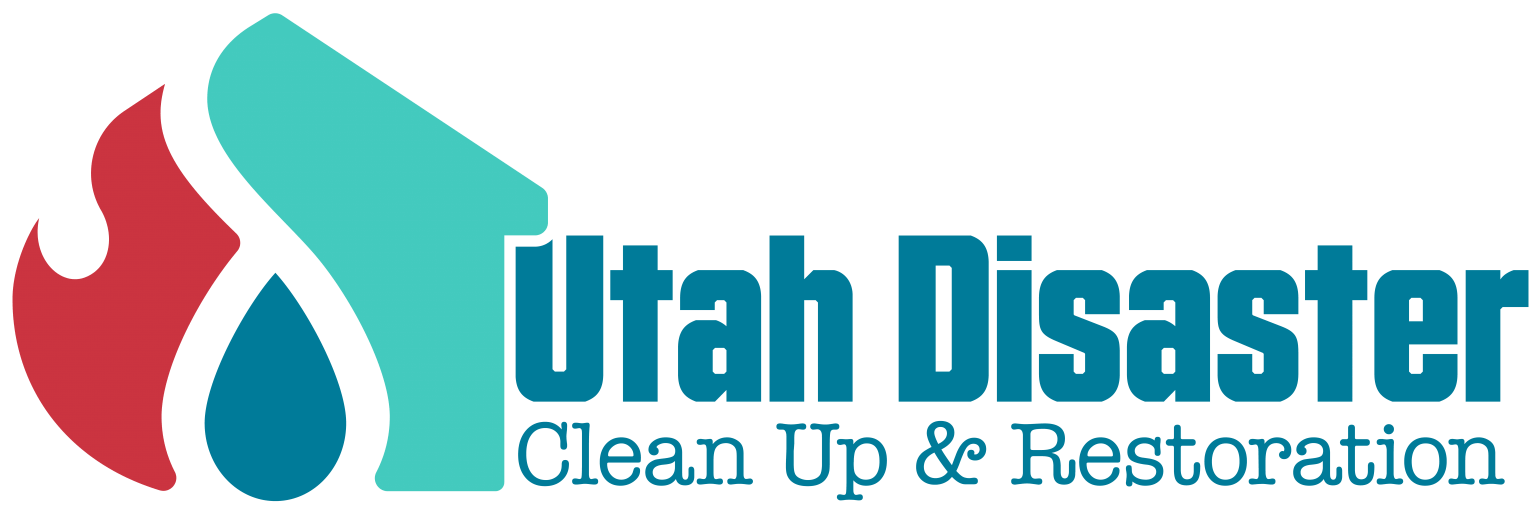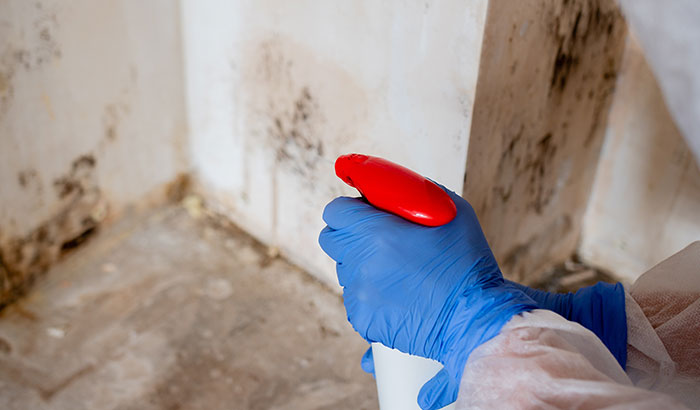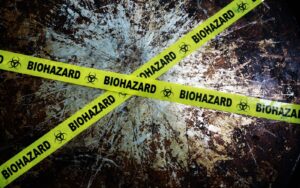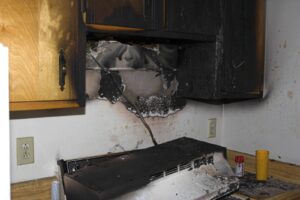Mold growth is a common problem in homes and can happen anywhere there is moisture, such as in the bathroom, kitchen, basement, inside walls, and ceilings. Mold can cause health problems for people exposed to it, and it can be difficult to detect because it often grows in hidden areas.
In this article, we will discuss all the signs that you may have mold in your home, and if you do have mold in your home, do you need to move out?
- Musty Smell: One of the most common signs of mold is a musty smell. If you notice an earthy or musty odor in your home, it may be a sign that mold is growing somewhere. The scent may be more pronounced in damp or humid areas, such as the bathroom or basement.
- Visible Mold: If you can see mold growing on surfaces in your home, such as walls, ceilings, or floors, it is a clear sign that you have a mold problem. Mold spores can appear as black, green, or white spots or patches. It may also have a fuzzy or slimy appearance.
- Water Damage: If you have had any recent water damage in your home, such as from a leaky pipe or roof, it increases the likelihood of mold growth. Mold can start to grow within 24 to 48 hours of water damage, so it is important to address any water damage as soon as possible.
- Health Problems: Mold exposure can cause various health problems, including respiratory issues, allergies, asthma, and even infections. If you or someone in your household is experiencing unexplained health problems, it may be a sign of mold exposure.
- Discoloration or staining: Mold can cause discoloration or staining on surfaces in your home, such as walls or ceilings. This discoloration may be a sign that mold is growing underneath the surface.
- Peeling or Bubbling Paint or Wallpaper: If the paint or wallpaper in your home is peeling or bubbling, it may be a sign of moisture or water damage, which can lead to mold growth.
- Condensation: If you notice condensation on windows or other surfaces in your home, it may indicate high humidity levels. High humidity can create a breeding ground for mold, so it is important to address any issues with condensation.
- Allergic Reactions: If you or someone in your household is experiencing allergic reactions, such as sneezing, coughing, or itchy eyes, it may be a sign of mold exposure. Allergic reactions can be a sign of sensitivity to mold spores.
- Increased Asthma Symptoms: Mold exposure can trigger asthma symptoms, such as wheezing, coughing, and shortness of breath. If you or someone in your household has asthma and is experiencing increased symptoms, it may be a sign of mold exposure.
- Warped or Bulging Walls or Ceilings: If the walls or ceilings in your home are warped or bulging, it may be a sign of water damage, which can lead to mold growth.
- High Humidity Levels: If the humidity levels in your home are consistently above 60%, it can create a breeding ground for mold. You can purchase a hygrometer to measure the humidity levels in your home.
- Peeling or Curling Vinyl or Linoleum Flooring: If the vinyl or linoleum flooring in your home is peeling or curling at the edges, it may be a sign of moisture or water damage, which can lead to mold growth underneath the flooring.
- Mold on Furniture or Clothing: If you notice mold growing on furniture or clothing, it may be a sign of high humidity levels in your home.
- Poor Ventilation: Poor ventilation in your home can create a damp and humid environment, leading to mold growth. If you have areas in your home that are poorly ventilated, such as a bathroom without an exhaust fan or a basement without windows, it can increase the risk of mold growth.
- Lingering Water Stains: If you have had water damage in your home, it may leave behind lingering water stains. These stains may indicate areas that are still damp and at risk of mold growth.
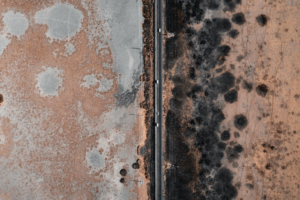
- Pest Infestations: Certain pests, such as rodents or insects, can create moisture problems in your home, which can lead to mold growth. If you notice an increase in pests in your home, it may be a sign of an underlying moisture problem.
- Deterioration of Building Materials: If the building materials in your home, such as drywall or wood, are deteriorating, it may be a sign of water damage and mold growth.
- Foggy Windows: If your windows are frequently foggy or have a film of excessive moisture, it may indicate high humidity levels in your home.
- Cracking or Peeling Grout: If your bathroom or kitchen grout is cracking or peeling, it may be a sign of water damage and mold growth.
- Increased Energy Bills: If you notice a sudden increase in your energy bills, it may be a sign of poor ventilation in your home, which can lead to mold growth.
What is Mold?
Mold is a fungus that can grow in damp, warm, and humid environments. It is present almost everywhere, both indoors and outdoors. While some molds are harmless, others can cause health problems for people exposed to them.
Mold can grow anywhere in your house where there is moisture, such as in the bathroom, kitchen, basement, or even inside walls and ceilings. Mold spores are microscopic and can easily become airborne, which means they can spread throughout your home quickly. If you have a mold problem, you may notice a musty smell or black, green, or white spots on surfaces.
The presence of mold in your home can be a cause for concern, especially if you or someone in your household is sensitive or allergic to it. Mold exposure can cause various minor health problems. In some cases, exposure to certain types of mold can also lead to more severe health problems, such as neurological damage or cancer.
If you find mold in your home, it is important to take action to address the problem. The first step is to identify the source of the moisture that is causing the mold to grow. This could be a leaky pipe, a roof leak, or poor ventilation in a bathroom or kitchen. Once you have identified the source of the moisture, you can take steps to address the problem, such as fixing the leak or improving ventilation.
If you have a small amount of mold, you can clean it up using a bleach solution or a commercial mold cleaner. However, if the mold has spread over a large area or penetrated walls or ceilings, it may be best to call a professional mold remediation company to handle the cleanup. Professional mold remediation companies have the equipment and expertise to remove mold safely and prevent it from spreading.
Now, let’s discuss whether you need to move out of your house if you find mold growth and why.
Now, the question is, do you need to move out of your house if you find mold? The answer is that it depends on the severity of the mold problem and your personal health situation. If you have a small amount of mold that is contained and easily remediated, you may not need to move out of your house. However, if the mold is widespread or someone in your household is sensitive to mold, it may be necessary to relocate while the mold is removed temporarily.
Suppose you or someone in your household has a compromised immune system, such as from HIV/AIDS, chemotherapy, or other medical conditions. In that case, it is crucial to take mold exposure seriously. People with weakened immune systems are more susceptible to infections from mold and may experience more severe health problems if exposed to mold spores.
In some cases, if the mold problem is severe and widespread, it may be necessary to move out of your home permanently. This is especially true if the mold has caused structural damage to your home, such as weakening walls or ceilings. In such cases, it may be unsafe to continue living in the house, and you may need to find alternative housing.
However, if the mold is widespread or someone in your household is sensitive to mold, it may be necessary to temporarily relocate while the mold is removed. If the mold problem is severe and has caused structural damage to your home, it may be necessary to move out permanently.
It is important to take mold exposure seriously and to address the problem as soon as possible.
What About Mold Cleanup?
Delaying cleanup can allow the mold to spread, making the situation more difficult and expensive to resolve. In addition, prolonged mold exposure can lead to more severe health problems, particularly for those with compromised immune systems.
If you have a small amount of mold, you can clean it up yourself or with the help of a professional mold remediation company.
If you decide to hire a professional mold remediation company, choosing a reputable and experienced company is important. Look for a company certified by the Institute of Inspection, Cleaning and Restoration Certification (IICRC) or the National Organization of Remediators and Mold Inspectors (NORMI). These organizations require members to meet certain standards and follow specific guidelines for mold remediation.
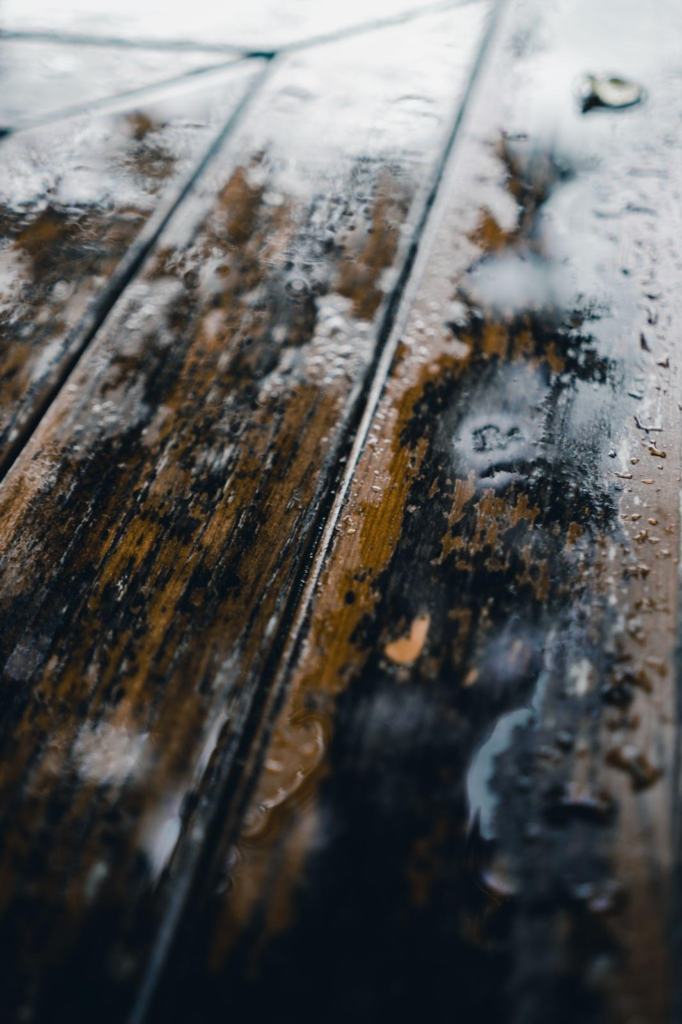
When it comes to preventing mold growth in your home, there are several steps you can take. These include:
- Keep humidity levels low: Mold thrives in humid environments, so it’s important to keep humidity levels in your home below 60%. Use a dehumidifier, especially in damp areas like basements and bathrooms.
- Fix leaks and drips: Mold can grow quickly in damp areas, so it’s important to fix any leaks or drips as soon as you notice them — this includes leaks in pipes, roofs, and windows.
- Use ventilation: Good ventilation can help prevent mold growth by allowing proper airflow and reducing humidity levels. Use exhaust fans in bathrooms and kitchens, and open windows when possible to allow fresh air to circulate.
- Clean and dry wet areas: If you have a spill or a leak, clean and dry the affected area as soon as possible. This will prevent mold from growing and spreading.
- Use mold-resistant products: When remodeling or building, use mold-resistant products such as drywall, paint, and insulation. These products are designed to resist mold growth.
- Maintain your HVAC system: Your HVAC system can be a breeding ground for mold if not maintained properly. Change air filters regularly and have your system inspected and cleaned by a professional at least once a year.
By following these steps, you can help prevent mold growth in your home and protect your and your family’s health.
A Brief Recap
Finding mold in your home can be a cause for concern, but it does not necessarily mean you need to move out of your house. The severity of the mold problem and your personal health situation will determine the best course of action. It is crucial to address the problem as soon as possible and to take steps to prevent mold growth in the future.
Let Utah Disaster Clean Up & Restoration Rid Your Home of Mold and Mold Damage
Mold removal will help improve your living conditions and allow you to avoid health effects caused by exposure to mold. If you’re looking to rid your home of mold growth, Utah Disaster Clean Up & Restoration is here to help. Contact us today via our online form or call us at (435) 512-1584 and let our trained professionals care for your mold remediation.
